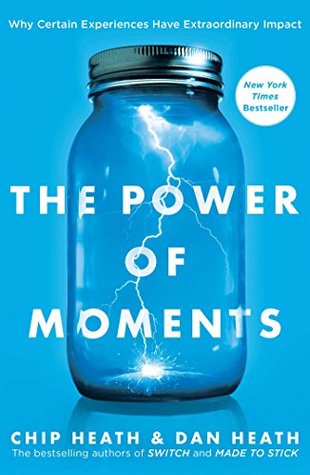More on this book
Community
Kindle Notes & Highlights
by
Chip Heath
Read between
April 24 - April 27, 2020
We all have defining moments in our lives—meaningful experiences that stand out in our memory.
Defining moments shape our lives, but we don’t have to wait for them to happen.
The “occasionally remarkable” moments shouldn’t be left to chance! They should be planned for, invested in. They are peaks that should be built. And if we fail to do that, look at what we’re left with: mostly forgettable.
Tripping over the truth is an insight that packs an emotional wallop. When you have a sudden realization, one that you didn’t see coming, and one that you know viscerally is right, you’ve tripped over the truth. It’s a defining moment that in an instant can change the way you see the world.
This three-part recipe—a (1) clear insight (2) compressed in time and (3) discovered by the audience itself—provides a blueprint for us when we want people to confront uncomfortable truths.
What’s important is authenticity: being personal not programmatic. And frequency: closer to weekly than yearly. And of course what’s most important is the message: “I saw what you did and I appreciate it.”
What milestones do is compel us to make that push, because (a) they’re within our grasp, and (b) we’ve chosen them precisely because they’re worth reaching for.
You can’t manufacture “moments of courage.” But in this chapter we’ll see that you can practice courage so that, when the moment demands it, you’ll be ready.
distinction between purpose and passion. Purpose is defined as the sense that you are contributing to others, that your work has broader meaning. Passion is the feeling of excitement or enthusiasm you have about your work.
People who were passionate about their jobs—who expressed high levels of excitement about their work—were still poor performers if they lacked a sense of purpose.
The best advice is not “Pursue your passion!” It’s “Pursue your purpose!” (Even better, try to combine both.)
How could such a small intervention have such a big effect? We are accustomed to thinking about relationships in terms of time: The longer the relationship endures, the closer it must grow. But relationships don’t proceed in steady, predictable increments.
Our relationships are stronger when we perceive that our partners are responsive to us.
Defining moments lead to countless positive and measurable outcomes, but in our judgment they are not a means to an end. They are the ends.


